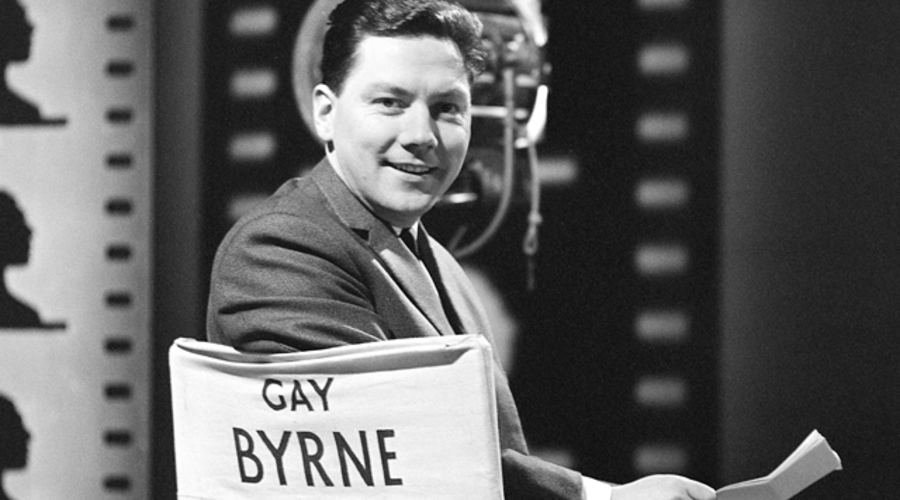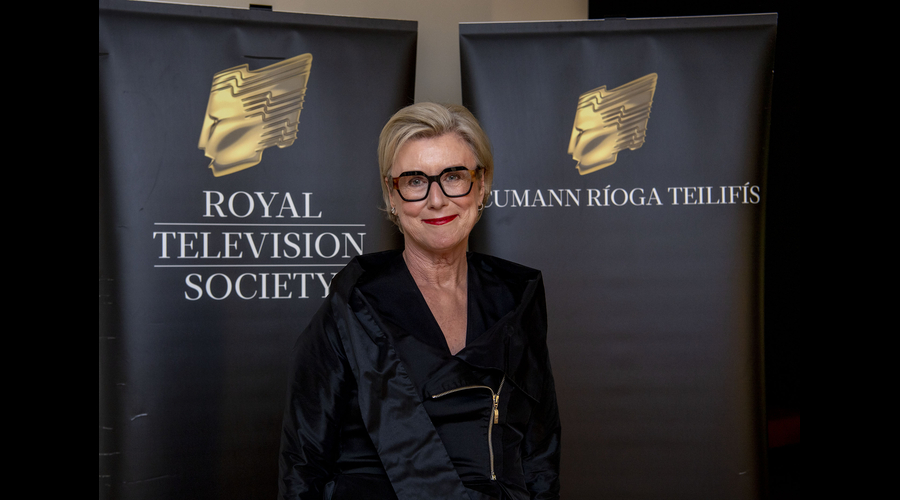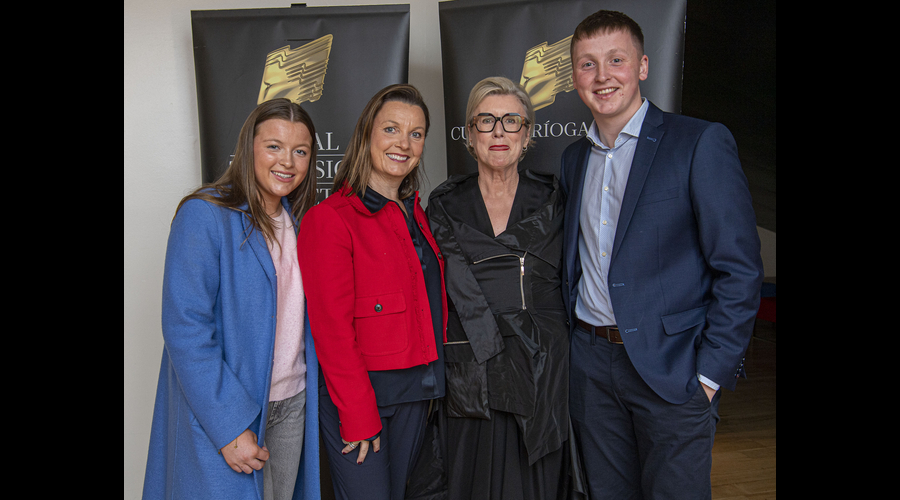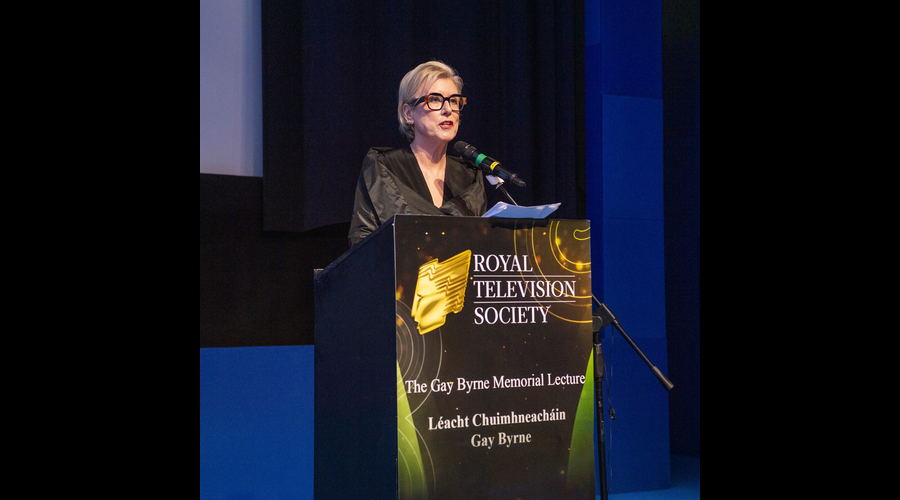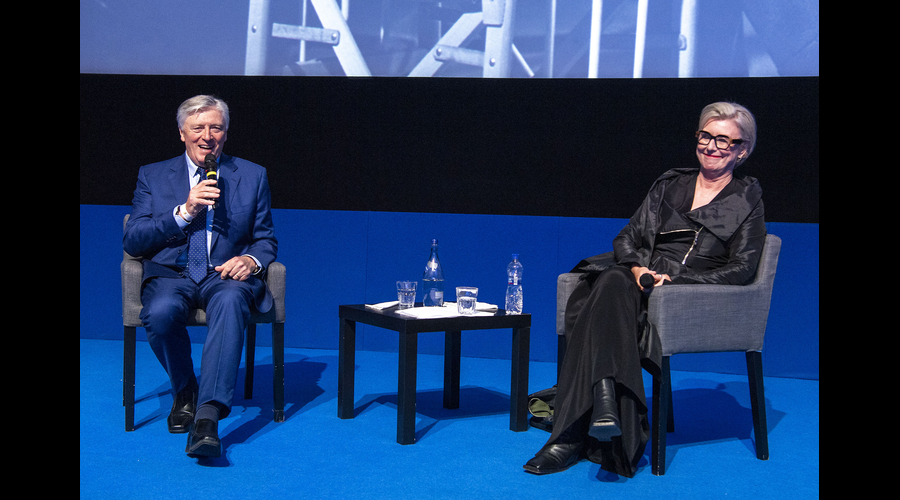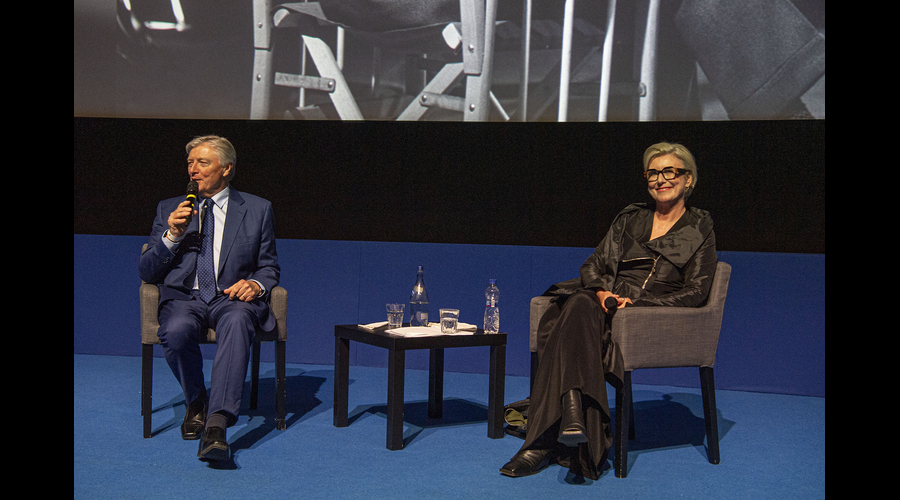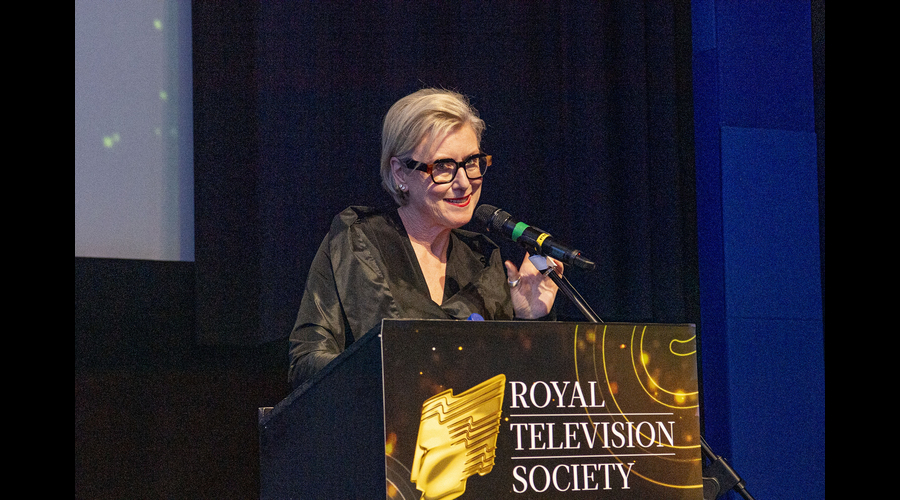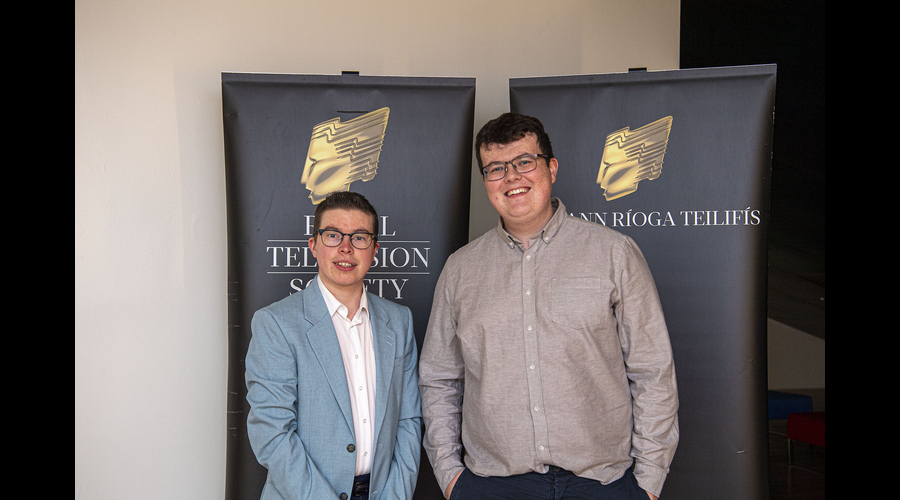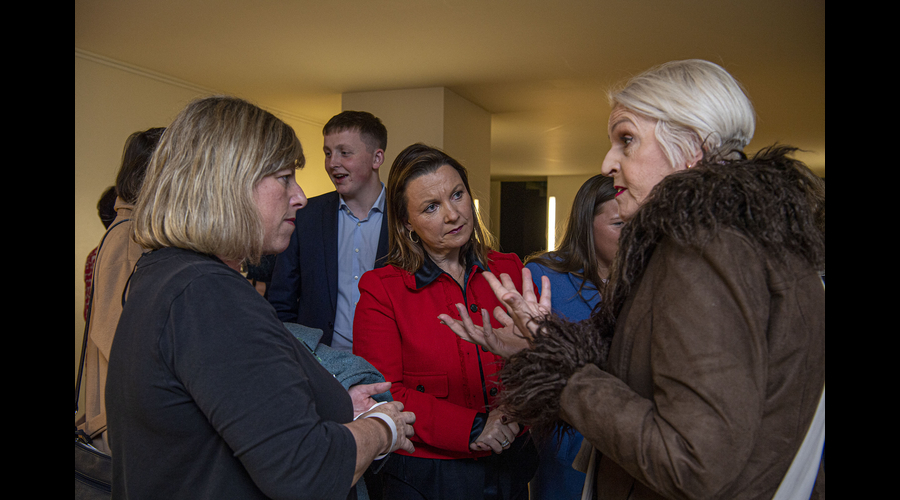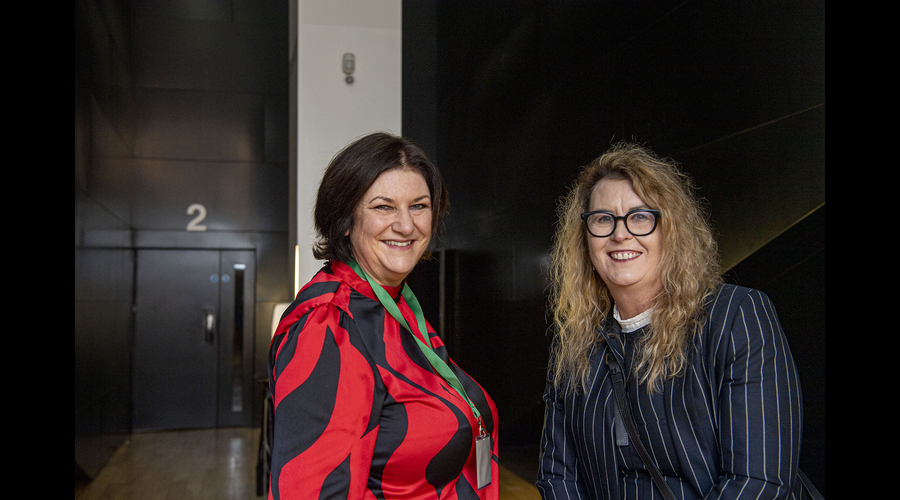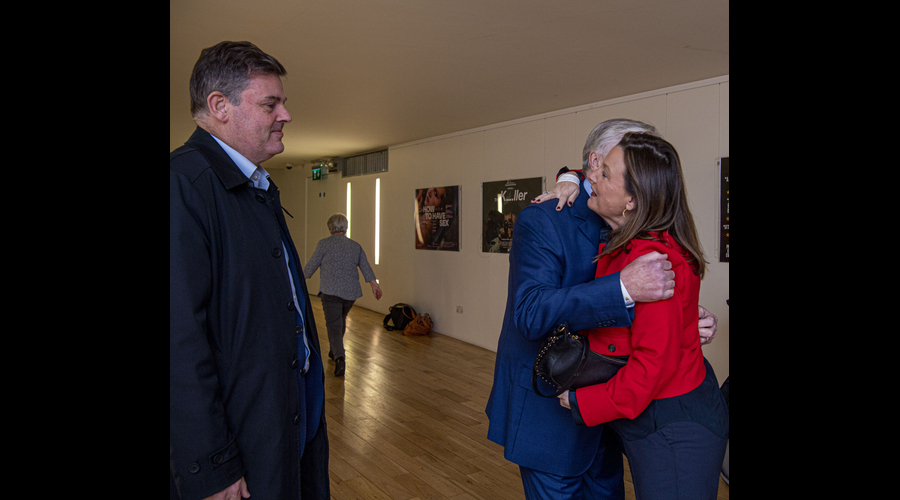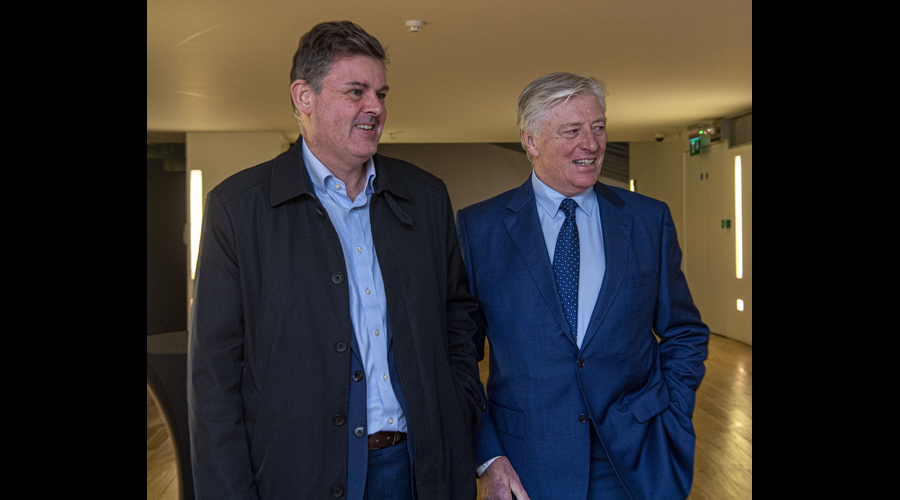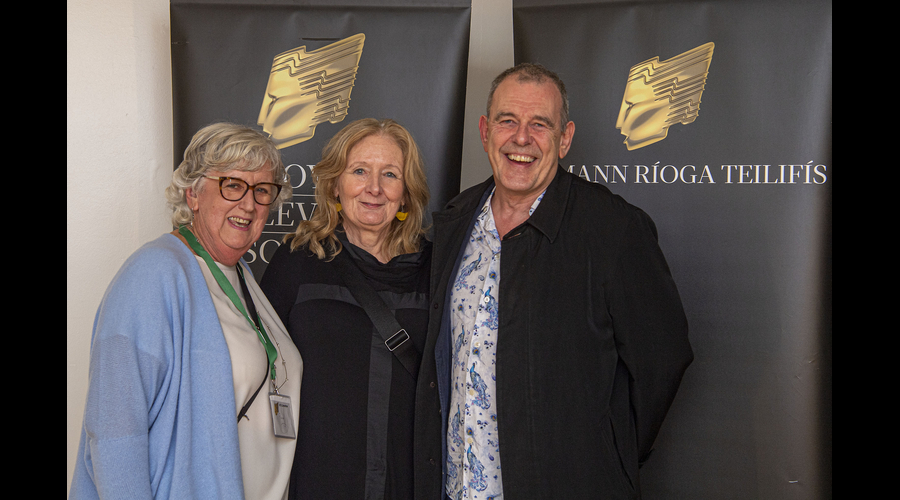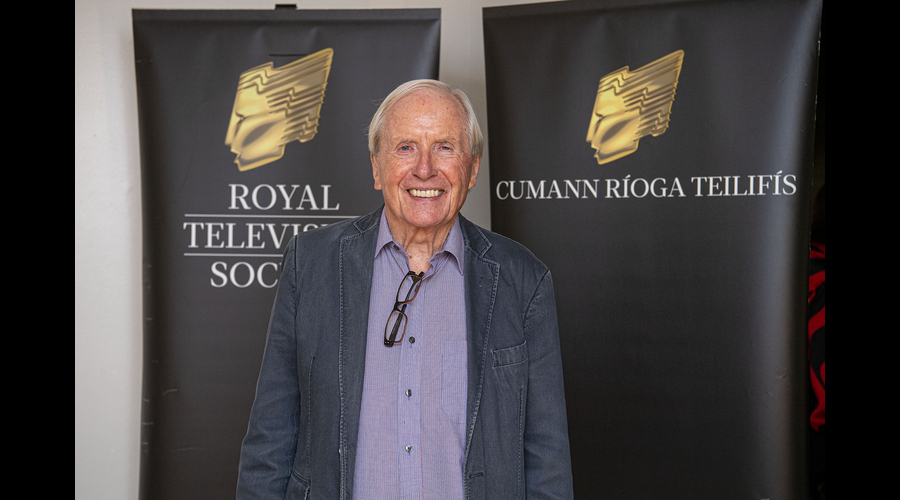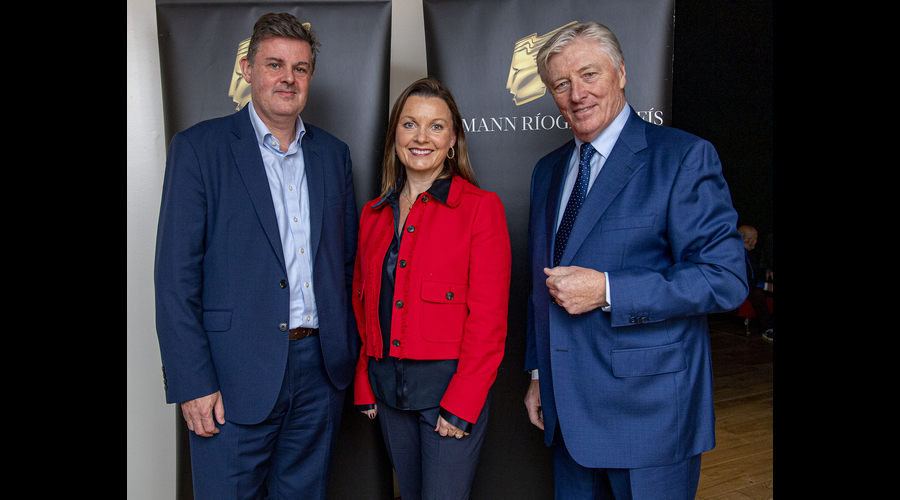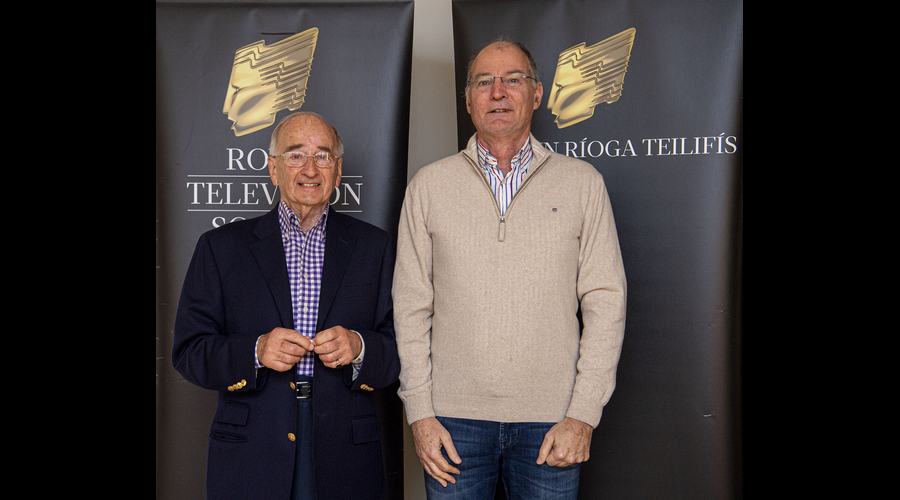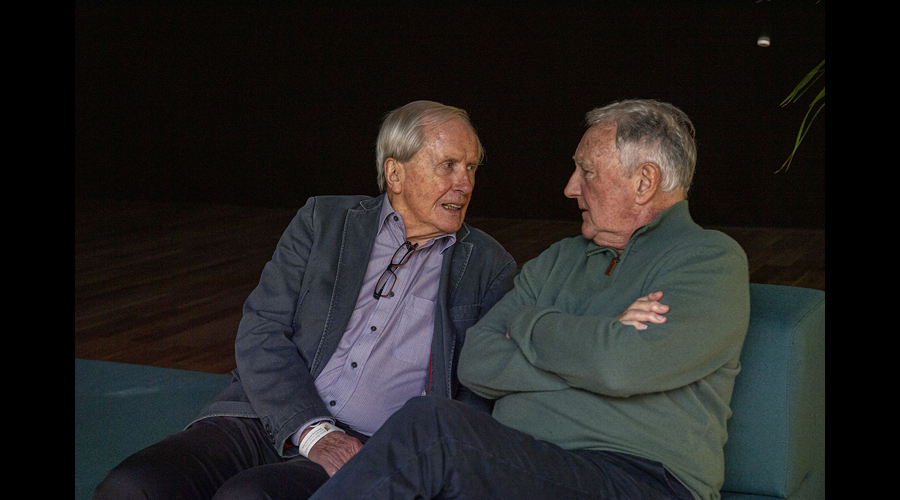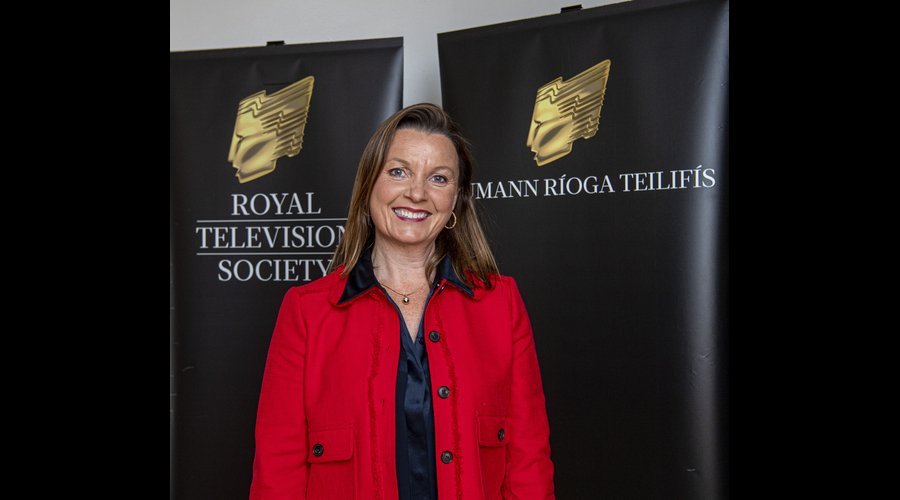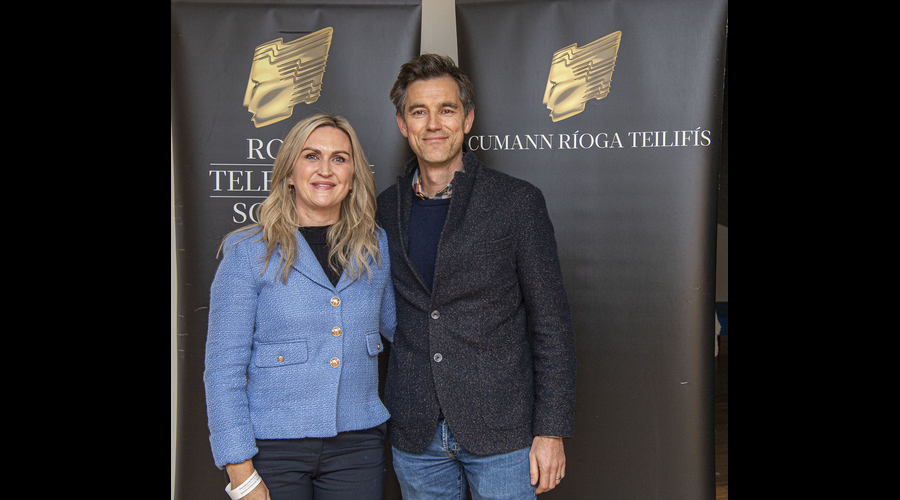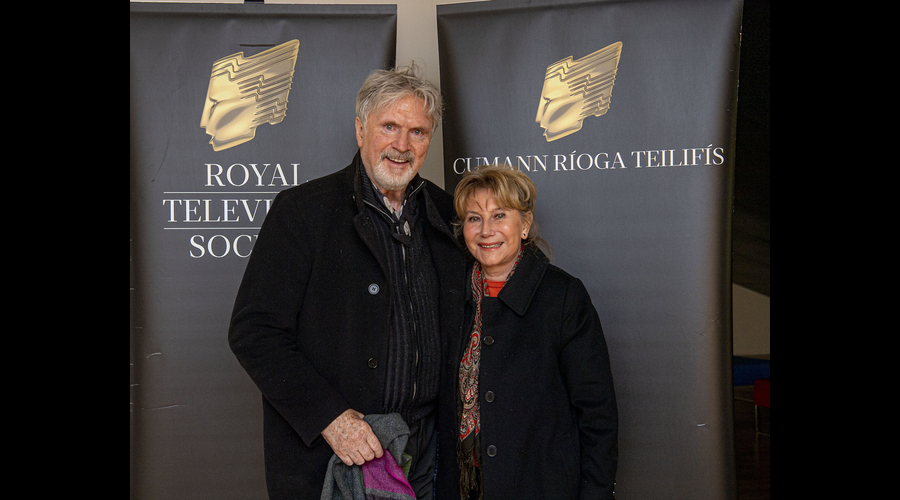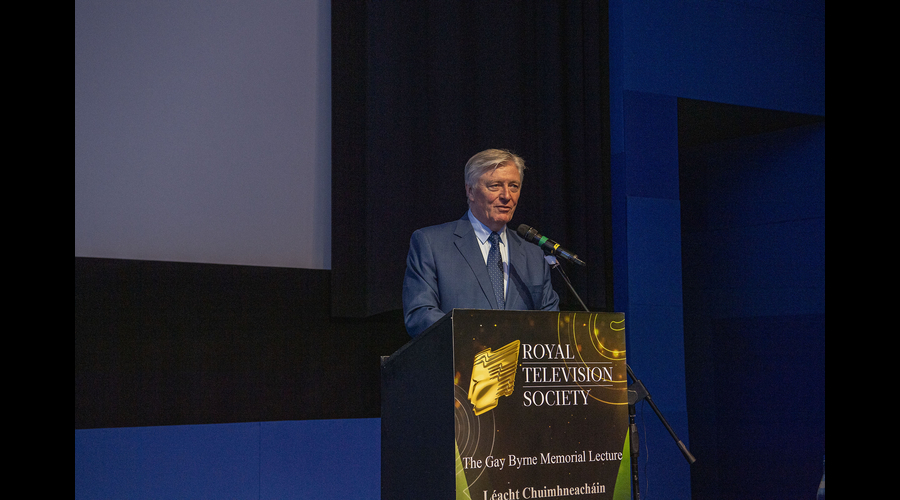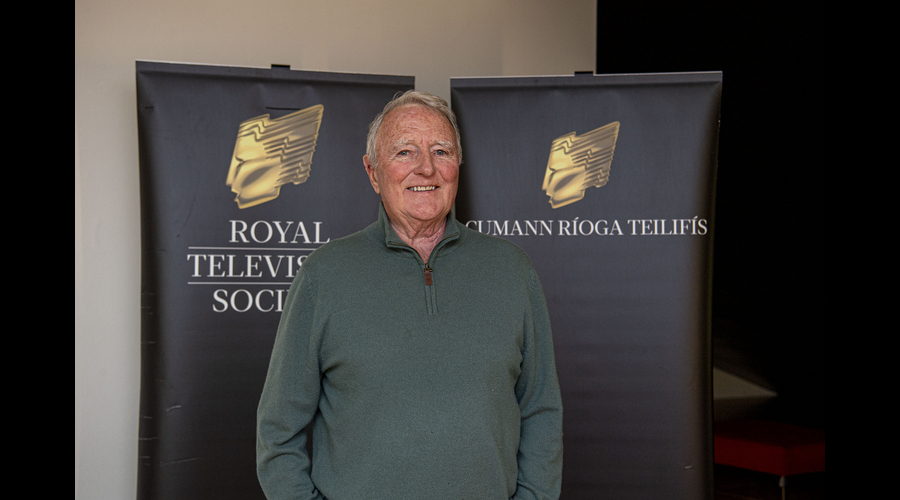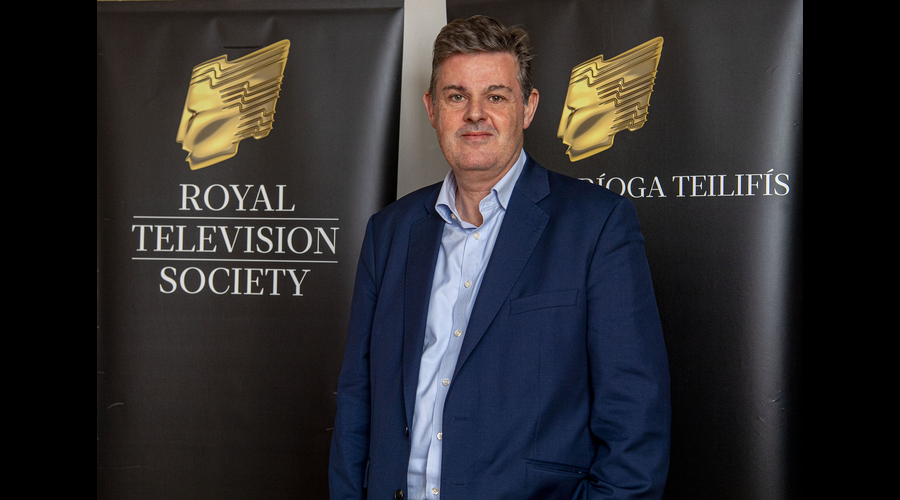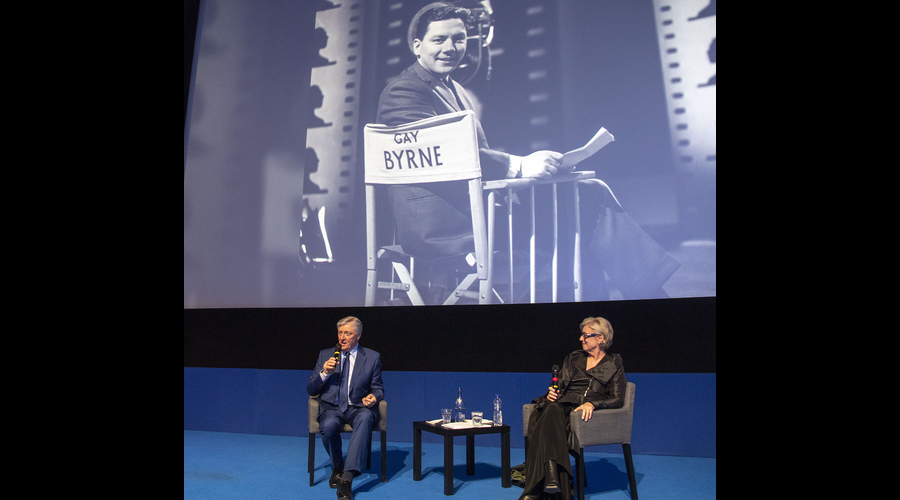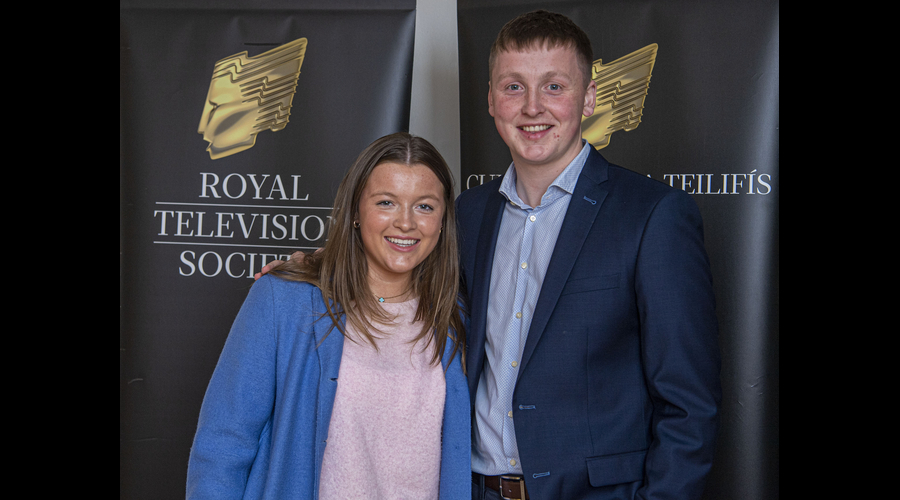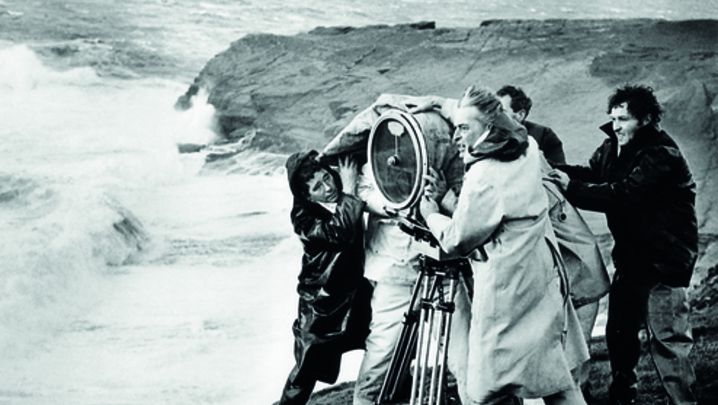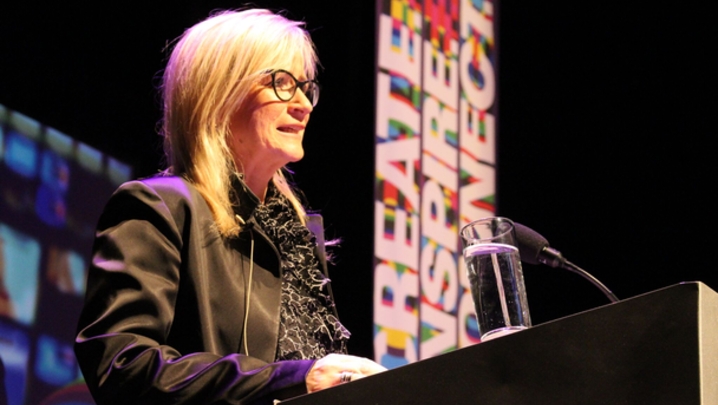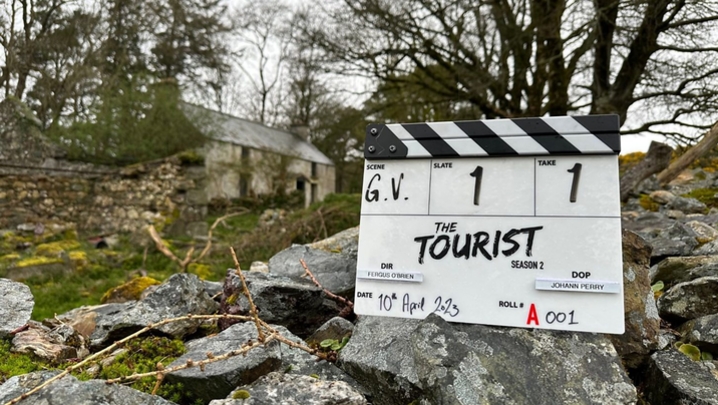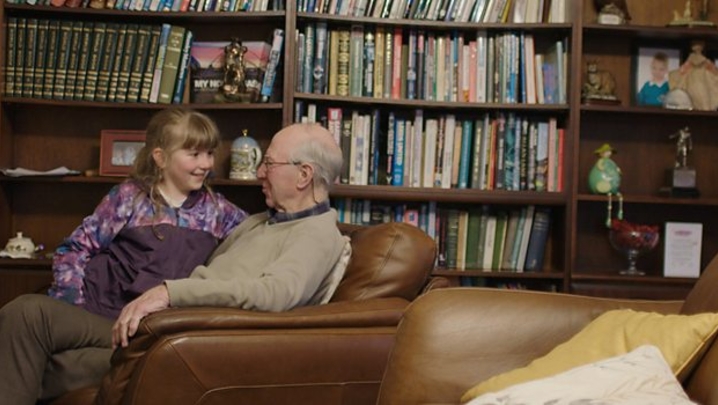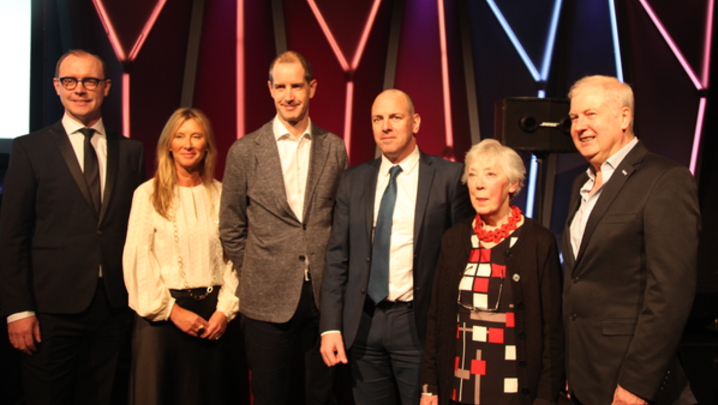On Thursday night, November 2nd 2023, a select audience of the great and the good in Irish broadcasting and media gathered in the Lighthouse Cinema Complex, Smithfield, Dublin to attend the first in a landmark series, (hopefully) of annual lectures to celebrate the memory of Ireland‘s best beloved broadcaster, Gay Byrne.
These will be called The Gay Byrne Memorial Lectures. Amongst the audience were many distinguished broadcasters and journalists, academics and members of the media. The theme of the night was Public Service Broadcasting, a topic which has become much more contentious and polarising in Irish society since it was first proposed as a theme a year ago, provoking some heated debate and intemperate opinion-sharing. Last night’s event shed some light and quite a lot of heat on the question of Public Service Broadcasting – what it it, what is it for, and what is its future. The keynote speaker was Moya Doherty, a former TV presenter and producer herself, now best described as ‘entrepreneur ‘. She has a had a very varied career as an RTÉ producer, the creator of the extraordinary phenomenon known as ‘Riverdance‘, independent producer of many award winning features and documentaries, MD of one of Ireland‘s best known and most successful production companies, Tyrone Productions, and she also spent eight years as Chair of the RTÉ Board. The Moderator was Pat Kenny, distinguished broadcaster, successor to Gay Byrne as host of the Late Late Show, and subsequently an independent broadcaster with Newstalk, an independent radio station. As a broadcaster he is not afraid to court controversy.
Moya outlined her challenge for a complete overhaul for the present system of broadcasting in Ireland, which is at present funded partly from advertising and partly from a licence fee. One of the recommendations she and others have made is for a system based on the Finnish model, which seems to be more successful than other European models. Even more than the financial basis for Public Service Broadcasting, however, she advocated for a deep-seated change based on the premise that PBS should be rooted in a cultural and philosophical foundation, rather than restricted to the narrower interpretation some may have of news and current affairs. For this she called for a consortium of public and private bodies, rather than a monolithic stricture more or less under the control of the state. In that regard, the broadcaster could act as ‘cultural broker‘ between the differing elements in society, commercial, political and social. She referred to the ‘existential crisis‘ in society, and its mirror, broadcasting, at the present time, and recommended that nothing less than a radical overhaul of root and branch would serve our present and more importantly future needs. Members of the audience referenced Lord Reich‘s admonition to ‘give the people not what they want, but what they need,‘ but Pat Kenny responded that a spoonful of sugar was needed with that medicine. With members of the audience sometimes clamouring to be heard and air their views, Pat steered things through to a more positive conclusion. Problems were not solved, but had maybe begun the journey towards resolution.

